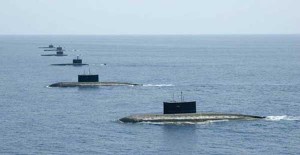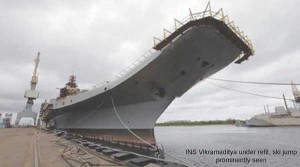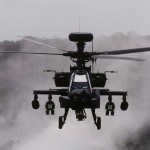Navy & Diplomacy
The Indian Navy has deservedly won praise for its rapid response in humanitarian crises, and in very successful “flag-showing” cruises to friendly countries. In fact the organisation at IHQ MoD (Navy) now reflects the increased importance being accorded to foreign military cooperation. What are the Navy priorities in foreign military interactions, and are we seeking to expand relation with countries such as Vietnam?
“As our interests grow, trade increases, and energy security becomes increasingly important, the Navy will need to augment its force levels”¦”
The Navy remains a very important instrument of diplomacy for the nation. The contours of Navy’s foreign cooperation are shaped by national interests, security considerations and are in consonance with the foreign policies of the country. Yes, the IN was the first Service to set up a Directorate of Foreign Cooperation. However, even before that, adequate focus was given to this aspect.
As our interests grow, trade increases, and energy security becomes increasingly important, the Navy will need to augment its force levels to protect our national interests. Keeping Sea Lines of Communications (SLOCs) open becomes an important task, which in this globalised world means that the Indian Navy will be called upon to protect ships carrying Indian exports and imports.
 At the regional level, the Indian Navy envisioned the Indian Ocean Naval Symposium (IONS) to encourage navies of the Indian Ocean Region to interact with each other and find common solutions to the maritime threats, and challenges that beset the region. The methodology adopted is to constructively engage one another through the creation and promotion of regionally relevant mechanisms, events, and activities. As you would know, the next round of IONs will commence in May 2010, when the Commander of the UAE Navy, takes over the chairmanship. In fact the theme for IONS 2010 that he has chosen, is reflective of the spirit of IONS: “Together, for the Reinforcement of Maritime Security in the Indian Ocean.”
At the regional level, the Indian Navy envisioned the Indian Ocean Naval Symposium (IONS) to encourage navies of the Indian Ocean Region to interact with each other and find common solutions to the maritime threats, and challenges that beset the region. The methodology adopted is to constructively engage one another through the creation and promotion of regionally relevant mechanisms, events, and activities. As you would know, the next round of IONs will commence in May 2010, when the Commander of the UAE Navy, takes over the chairmanship. In fact the theme for IONS 2010 that he has chosen, is reflective of the spirit of IONS: “Together, for the Reinforcement of Maritime Security in the Indian Ocean.”
The frequency and intensity of natural disasters that emanate from the sea have increased, and it is an important peace time function that navies across the world have been called upon to fulfill. Your readers would be interested in knowing that the theme for the seminar on one day during MILAN 2010 to be held at Port Blair from 03-08 Feb 10 is very appropriately, “Navies in Humanitarian Assistance and Disaster Relief Operation”. In fact, as many as 12 countries are participating in this major bi-annual exercise. Nine navies are sending their ships as well. In all our navy to navy interactions with countries across the IOR and South East Asia, close cooperation in maintaining good order at sea has been the overriding theme. We seek to do this with all likeminded nations who hold a stake in maintaining peace, tranquility and harmony in the oceans.
Piracy
The decisive actions by Indian naval ships in Western Arabian Sea in anti-piracy operations have drawn favourable reactions from most quarters. Is this the result of a re-casting of the rules of engagement in such operations?
“”¦more than 812 merchant ships of varying nationalities, with more than 6,800 Indians onboard have been escorted safely by Indian warships”¦”
Over the past few years, piracy off the coast of Somalia and in the Gulf of Aden, and recently off the Seychelles, has increased considerably and has now assumed very serious proportions. The number of piratical incidents reported in 2009 has surpassed the total number reported in 2008. The total number of attacks reported during 2009 around Somalia, Seychelles and off the Oman coast are about 200.
To protect Indian Flagged ships and Indian citizens employed in seafaring duties, the Indian Navy has deployed one warship, continuously, in the Gulf of Aden, since Oct 2008 for anti-piracy operations. A total of 17 IN ships have been deployed in the Gulf of Aden by turn since Oct 2008. Each deployment has been for a period of approximately 35 to 40 days. In addition, to escorting Indian flagged ships, ships of other flags have also taken our assistance of escort. Merchant ships are currently being escorted along the entire length of the 490 nm long and 20 nm wide Internationally Recommended Transit Corridor (IRTC) that has been promulgated for use by all merchant vessels.
An escort schedule which indicates the commencement date of the escort, at either end of the corridor, is intimated to DG Shipping who promulgates it. This arrangement is working satisfactorily and the presence and actions taken by Indian naval ships in the area have deterred the pirates from hijacking merchant ships on numerous occasions.
 As of date, more than 812 merchant ships of varying nationalities, with more than 6,800 Indians onboard have been escorted safely by Indian warships and at least 15 piracy attempts have been averted by Indian Navy’s ships patrolling the Gulf of Aden. Thus the presence of the Indian Navy in these piracy infested waters has provided security assurance to Indian flagged merchant ships that transit through the Gulf of Aden.
As of date, more than 812 merchant ships of varying nationalities, with more than 6,800 Indians onboard have been escorted safely by Indian warships and at least 15 piracy attempts have been averted by Indian Navy’s ships patrolling the Gulf of Aden. Thus the presence of the Indian Navy in these piracy infested waters has provided security assurance to Indian flagged merchant ships that transit through the Gulf of Aden.
The rules of engagement for ships on anti piracy missions are in consonance with International regulations that permit proportionate action to be taken in self defence. It is therefore emphasised, that the IN has not recast any of its rules of engagement for anti piracy operations, but has maintained continuous vigil and presence in pirate infested areas, rendering help as and when required by any seafarer transiting the area.




